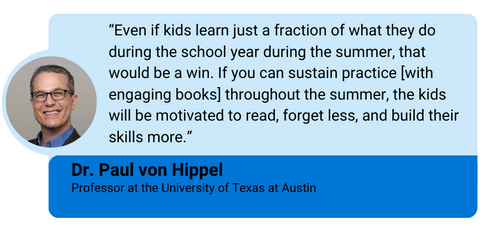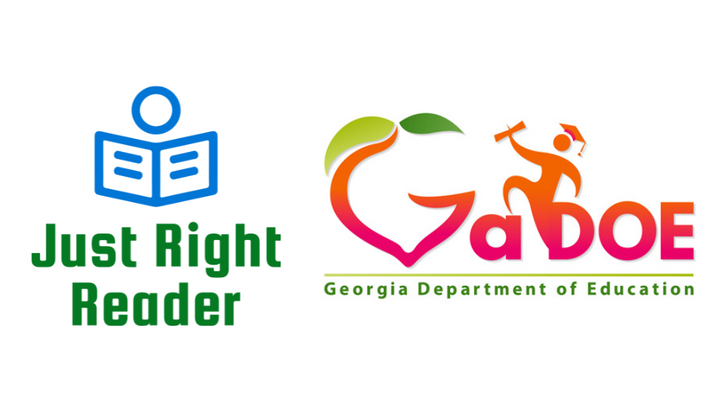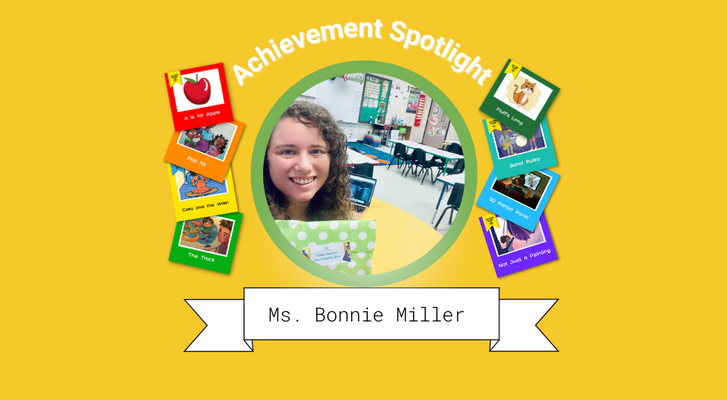
With the 2024 NAEP scores showing gaps in reading skills, summer learning has never been more critical. Forward-thinking district leaders are already planning how to keep students engaged through structured on-site programs or by equipping families to support literacy at home.
No matter how students spend their summers, research proves it’s a valuable opportunity to accelerate learning and instill a lifelong love for reading.
So, how can district leaders leverage summer as an opportunity to accelerate learning?
Why is Summer Reading Important?

A large body of research around summer reading and learning suggests that learning becomes stagnant during the summer for some students, particularly if access to engaging books diminishes and even more so for students from economically disadvantaged backgrounds (Alexander, Entwisle, & Olson, 2007).
In a Just Right Reader Science of Reading Symposium, Dr. Paul von Hippel, Professor at the University of Texas at Austin, reimagined how we view summer, not as a threat of loss but as an opportunity to maximize learning.
In addition to reinforcing skills developed during the school year, studies found that summer reading offers numerous benefits:
- Enhanced cognitive development and academic performance
- Strengthened proficiency in fundamental reading skills such as phonemic awareness, phonics, comprehension, vocabulary, and fluency
- Increased motivation to explore new topics that build background knowledge
How Can Districts Accelerate Summer Learning?
Whether students participate in on-site summer school programs or read-at-home initiatives, Dr. von Hippel emphasizes the importance of using these five steps and consistent daily practice to ensure students maximize their learning opportunities during summer.

Provide engaging, high-quality books for students to read in summer school programs and at home.
Providing students access to engaging books they can decode is key to a successful summer learning experience.
Suppose districts can’t provide on-site summer school programs. In that case, some studies conclude that giving engaging books to students and families to read at home is also an effective approach to accelerating summer learning.
The American Institutes for Research for the Reading Is Fundamental Community Foundation conducted a meta-analysis of 108 studies on the impacts of providing free books to students to read at home.The findings suggest there are numerous advantages to this method (McGill-Franzen, A., Ward, N. & Cahill, M., 2016):
- Acceleration of development of emergent reading skills
- Increase in reading proficiency
- Improved attitudes towards reading
- Increase reading time due to increased volume of books available
Dr. von Hippel cautions that it’s often easy to overestimate what kind of access to books students have. In many instances, if there are books in homes, they aren’t necessarily engaging or at the student’s independent reading level.
That’s whereJust Right Reader Take-Everywhere Literacy Packs come in.
How Take-Everywhere Literacy Packs™ Solve Summer’s Biggest Challenges

District leaders and principals face challenges with summer learning loss, family engagement, and book access.
Summer Take-Everywhere Literacy Packs™ solve these challenges with personalized, research-backed literacy resources that keep students excited about reading all summer.
Prevent Learning Loss, Close Gaps, & Accelerate Achievement
Without structured reading support, students, especially struggling readers, can lose academic progress over the summer.
Summer Take-Everywhere Literacy Packs™:
✔ Build and reinforce phonics skills with structured practice aligned with the Science of Reading
✔ Include engaging, decodable books personalized for each student’s skill level based on reading data
✔ Provide intervention support to help at-risk students before they fall further behind
Make Literacy Accessible to All Students
Many students don’t have books at home, and schools worry about digital fatigue from too much screen time.
Summer Take-Everywhere Literacy Packs™:
✔ Provide real books that don't require screens or Wi-Fi
✔ Ensure every student takes home high-quality decodables
✔ Give students their own library of books to keep reading anywhere
Engage Families & Remove Barriers
Families want to help, but many lack the tools or confidence to support reading at home.
Summer Take-Everywhere Literacy Packs™:
✔ Engage families with fun phonics video lessons in multiple languages
✔ Provide families with simple, research-based strategies
Keep Students Motivated & Make Reading Joyful
Students don’t want summer learning to feel like homework.
Summer Take-Everywhere Literacy Packs™:
✔ Include relatable and fun stories kids love
✔ Offer research-based activities like High Five Reading
✔ Create excitement with packs of books wrapped in fun paper that kids can’t wait to open
Easy for Teachers & Schools to Implement
Teachers are exhausted by the end of the school year, and many districts struggle to staff summer programs.
Summer Take-Everywhere Literacy Packs™:
✔ Include lesson plans and resources — no extra prep required
✔ Can be used at home or during summer school programs
✔ Ensure districts provide consistent and effective literacy support
Personalized for Every Student and Customized for Your District

Additional Strategies for Optimizing Summer Learning
Dr. Paul von Hippel recommends three steps to ensure summer learning success. [01:15]
Dr. Lucy Hart Paulson, LETRS Co-Founder and Professor of Education at Stanford University, explains how caregivers, families, and teachers can keep students reading over the summer by engaging in conversations around reading. [01:59]
Click here to learn how a school district in Florida successfully implemented Just Right Reader Take-Everywhere Literacy Packs into their summer reading program.
References
Alexander, K.L., Entwisle, D.R., & Olson, L.S. (2007). Lasting consequences of the summer learning gap.American Sociological Review, 72(2), 167–180.
Dr. von Hippel, Paul. Professor at The University of Texas at Austin.
Symposium on The Opportunity of Summer Learning, February 21, 2024.
McGill-Franzen, A., Ward, N. & Cahill, M. (2016). Summers: Some Are Reading, Some Are Not! It Matters. The Reading Teacher, 69(6), 585–596. doi:10.1002/trtr.1461








